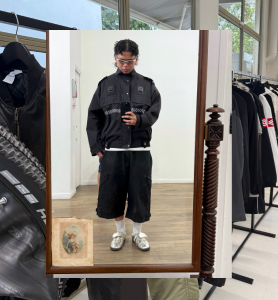Timberland taps Kiwi creatives Marcus Watson and Diggy Dupe for a lesson in legacy
To call someone or something an icon is as easy as counting to three. In today’s landscape of viral-chasing highs and algorithms over authenticity, the word is tossed around all too easily — often stripped of the weight it once held. So, what does a true icon look like? As Tāmaki Makaurau creative Marcus Watson puts it, “It’s more than just style or status; it’s when your work leaves an imprint, makes a real impact, and becomes part of a culture.”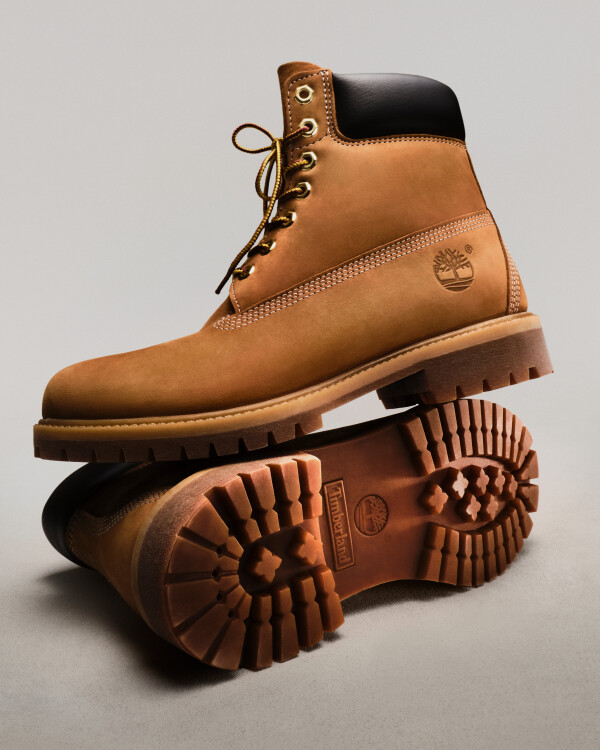
Inviting us to favour feeling over frivolous decoration, Timberland places its all-encompassing icon — the Original Yellow Boot™ — under the spotlight for its Advice of an Icon campaign, a movement that celebrates authenticity and reminds us that a true icon doesn’t seek validation — it earns it.
For more than 50 years, the Timberland Original Yellow Boot™ has become a pivotal and instantly recognisable piece of fashion history. Characterised by its unmistakable wheat colour, unrivalled craftsmanship, and enduring comfort, the boot has transcended generations, remained timeless through turbulent trend cycles, and, above all, earned its well-deserved global icon status thanks to its ongoing service to great style and substance. Whether you’ve treasured a pair for years or, like New Zealand musician Diggy Dupe, recall watching 2Pac lace his up in the Hit ‘Em Up video, chances are the boot holds its own place in your story too.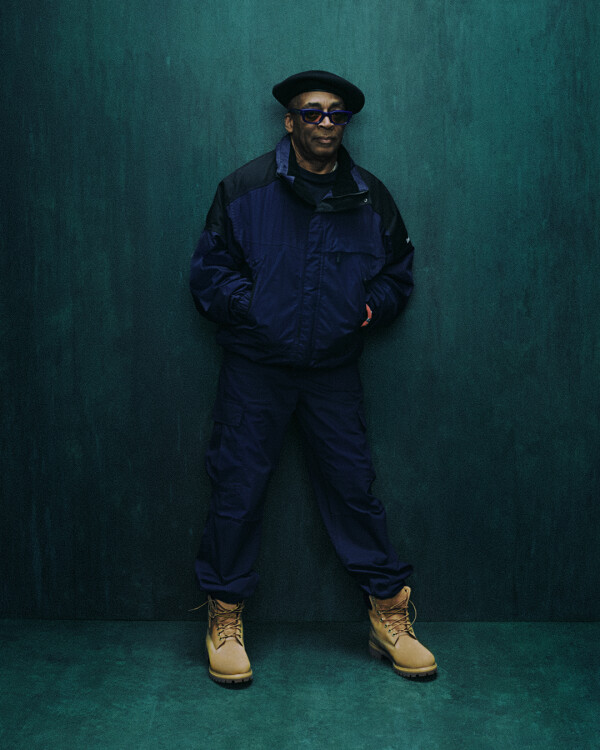
Now, the renowned shoe enters a reflective chapter — one that honours those who push creative boundaries, lead with conviction, and inspire others to do the same. While global campaign faces like Spike Lee, Skepta, and Kiko Mizuhara fly the flag worldwide, closer to home, Timberland calls upon Kiwi creatives Diggy Dupe and Marcus Watson to share their Timberland story — one rooted in self-expression, craftsmanship, and creative collaboration.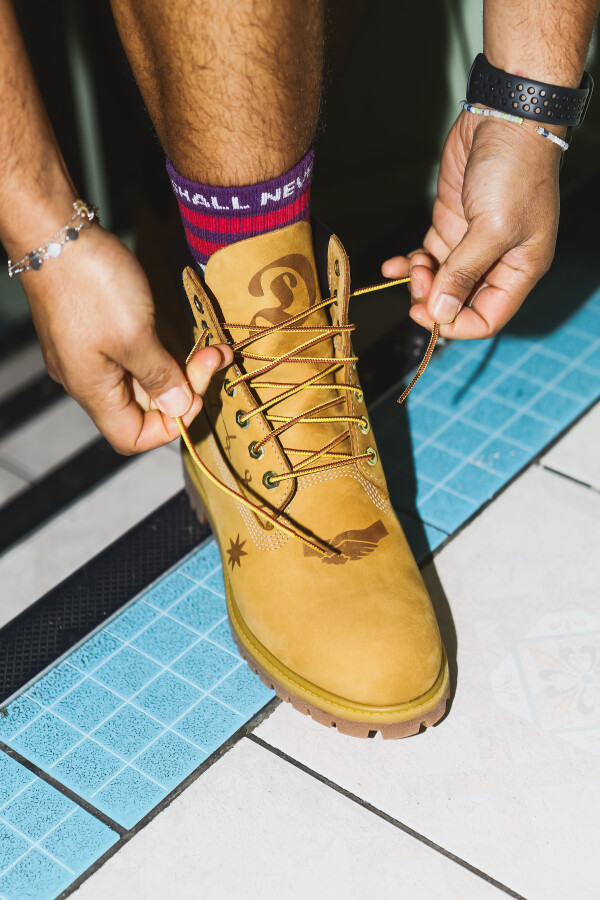
Together, musician Diggy Dupe and artist Marcus were tasked with reimagining the Timberland Original Yellow Boot™ through their own creative lenses. For Marcus, that meant bringing his hallmark graphics — symbolic, structured, and abstract — to life; for Diggy Dupe, it was about infusing his colourful, soulful, and bold identity as a performer. The result? A one-of-a-kind six-inch boot, adorned with personalised motifs almost “tattooed” onto its surface. “Each symbol represents an element of Diggy Dupe's story, so for example the Hibiscus is a reference to his Pacific Island roots, while the chain-link fence and 37600 postcode refer to his upbringing in Grey Lynn,” reveals Marcus. “ I liked the juxtaposition of these two motifs. The handshake icon is about connection and collaboration.”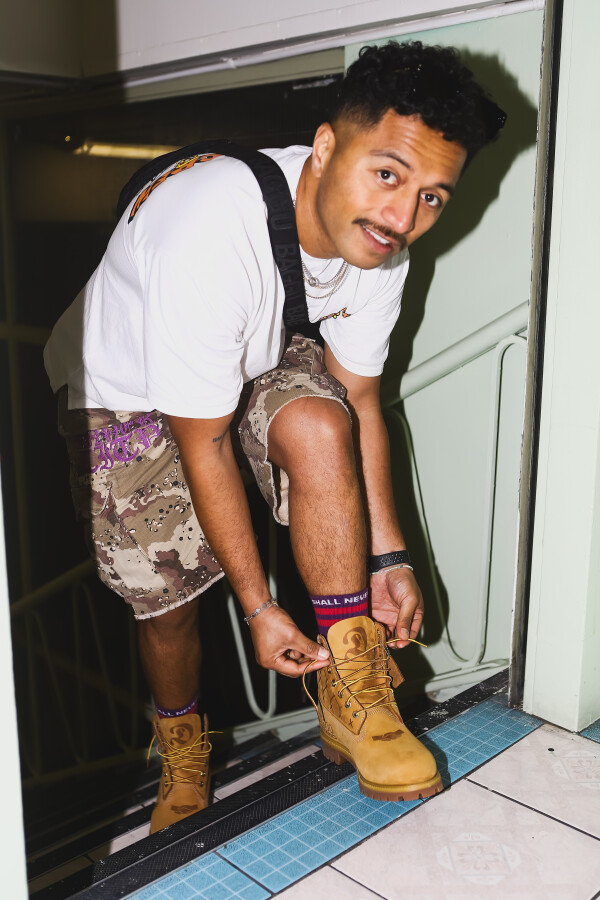
On paper, the pair might seem worlds apart, but in practice, the collaboration came naturally. Diggy Dupe already owned one of Marcus’s artworks, which hangs proudly by his front door, and both say the partnership felt like an honour and a privilege. “Diggy Dupe's got a real clear sense of who he is and what he represents,” Marcus explains. “We bounced ideas around, and the themes came together naturally. I think our styles worked well because we’re both artists and storytellers in our own right.”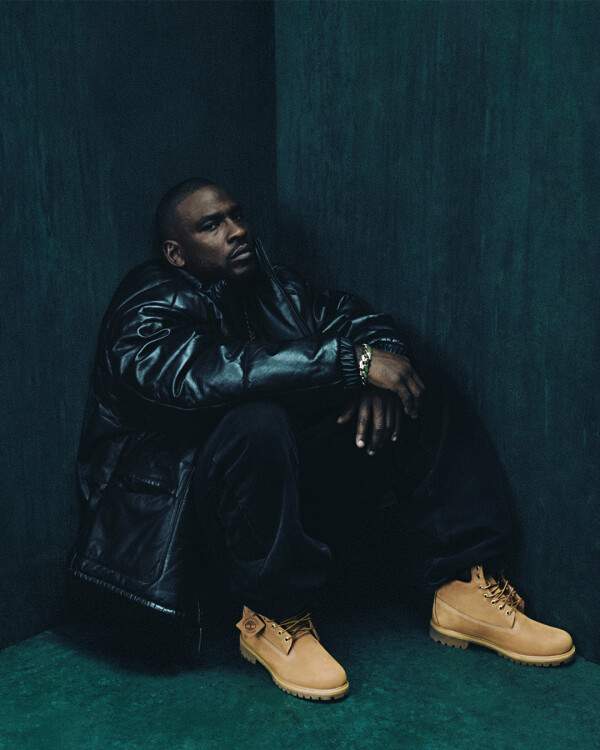
That sense of creative kinship reflects the broader message of the campaign — building something that lasts, whether through work, community, or culture. As global ambassador, Skepta puts it, “People need to remember their community; to remember their immediate people. Nowadays, they’re not looking at what’s in front of them — they’re trying to please what’s in their phone. Do it for the people around you and let them tell the rest of the world how sick you are.”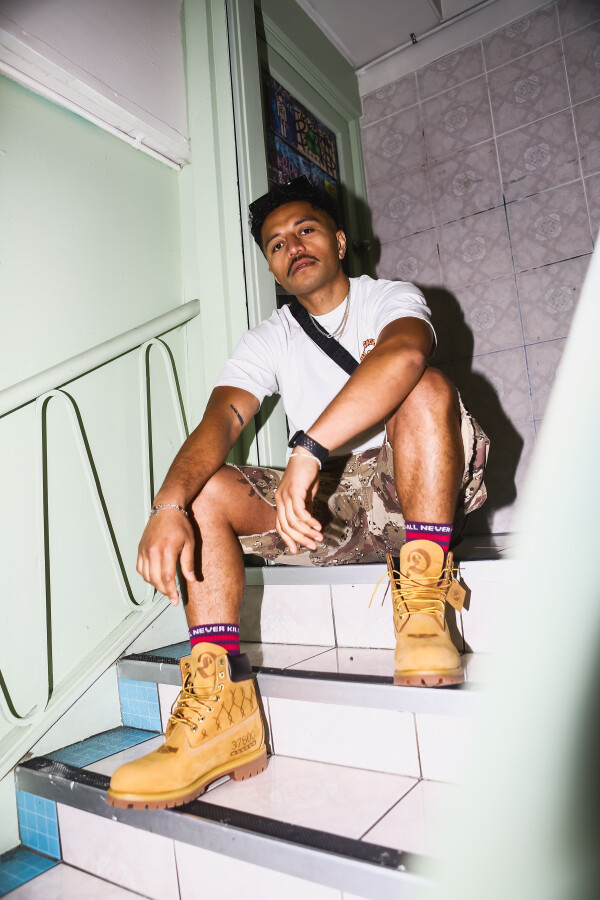
With more than five decades of legacy laced into its DNA, the Timberland Original Yellow Boot™ has long been a symbol of craft and conviction. When asked what kind of legacy they hope to leave on their own crafts, both Diggy Dupe and Marcus shared visions grounded in authenticity. “I hope my work continues to evolve while staying true to its identity,” says Marcus. “If my art still feels relevant and recognisable decades from now, I’ll be happy.” Diggy Dupe adds, “Hopefully people will see that we stayed true to ourselves — no matter how much our surroundings changed. We put our own little twist on this music thing and were unapologetically brown.”
Diggy Dupe image credit: Ronald Reiza



